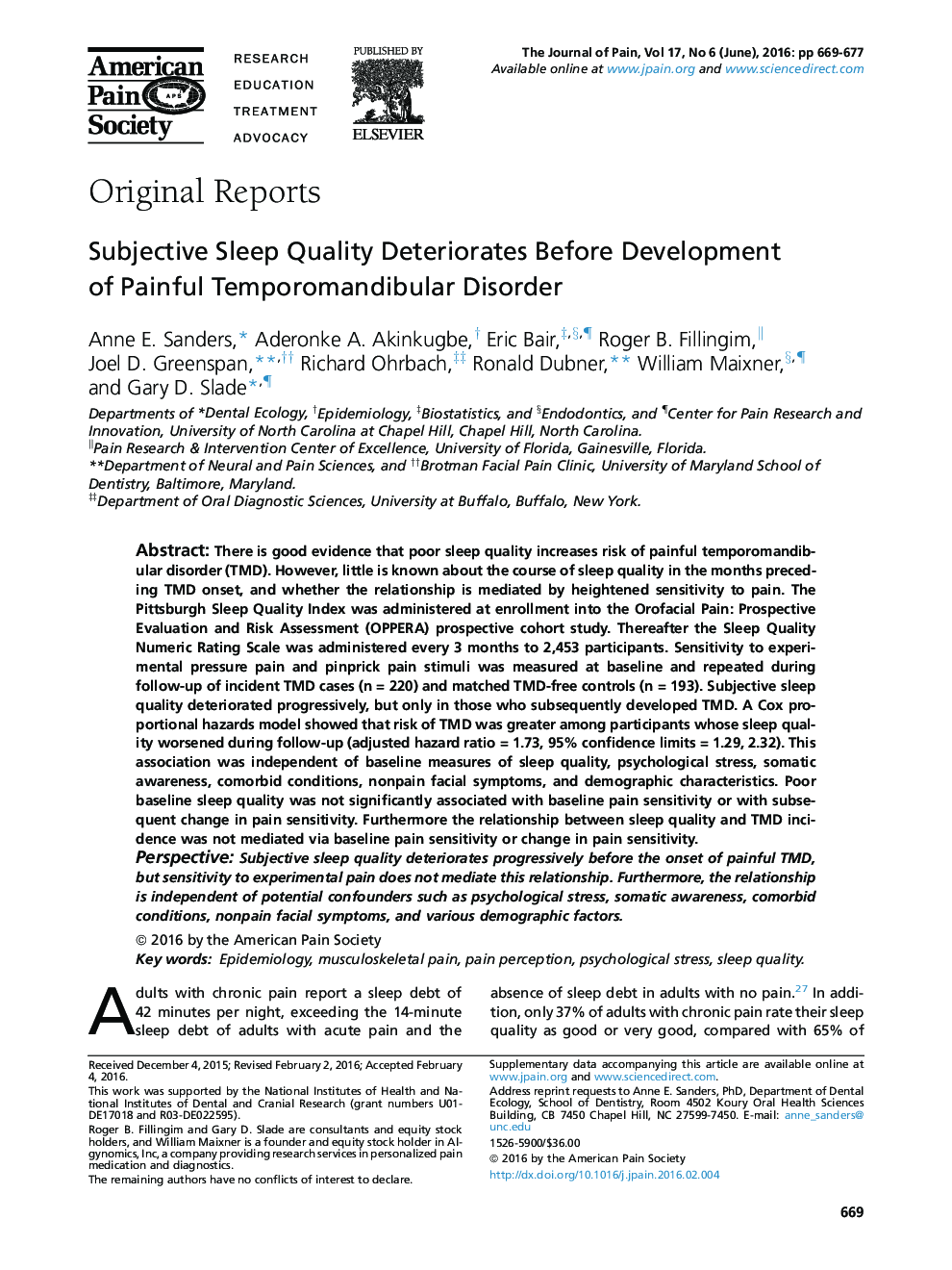| کد مقاله | کد نشریه | سال انتشار | مقاله انگلیسی | نسخه تمام متن |
|---|---|---|---|---|
| 2733376 | 1566719 | 2016 | 9 صفحه PDF | دانلود رایگان |
• Subjective sleep quality worsened progressively before the onset of painful temporomandibular disorder (TMD).
• Sleep quality was stable over time in participants who remained free of TMD.
• Sleep quality was a stronger predictor of TMD than well established TMD risk factors.
• Worsening sleep quality did not predict an increase in pain sensitivity.
• Pain sensitivity did not mediate the relationship between sleep quality and TMD.
There is good evidence that poor sleep quality increases risk of painful temporomandibular disorder (TMD). However, little is known about the course of sleep quality in the months preceding TMD onset, and whether the relationship is mediated by heightened sensitivity to pain. The Pittsburgh Sleep Quality Index was administered at enrollment into the Orofacial Pain: Prospective Evaluation and Risk Assessment (OPPERA) prospective cohort study. Thereafter the Sleep Quality Numeric Rating Scale was administered every 3 months to 2,453 participants. Sensitivity to experimental pressure pain and pinprick pain stimuli was measured at baseline and repeated during follow-up of incident TMD cases (n = 220) and matched TMD-free controls (n = 193). Subjective sleep quality deteriorated progressively, but only in those who subsequently developed TMD. A Cox proportional hazards model showed that risk of TMD was greater among participants whose sleep quality worsened during follow-up (adjusted hazard ratio = 1.73, 95% confidence limits = 1.29, 2.32). This association was independent of baseline measures of sleep quality, psychological stress, somatic awareness, comorbid conditions, nonpain facial symptoms, and demographic characteristics. Poor baseline sleep quality was not significantly associated with baseline pain sensitivity or with subsequent change in pain sensitivity. Furthermore the relationship between sleep quality and TMD incidence was not mediated via baseline pain sensitivity or change in pain sensitivity.PerspectiveSubjective sleep quality deteriorates progressively before the onset of painful TMD, but sensitivity to experimental pain does not mediate this relationship. Furthermore, the relationship is independent of potential confounders such as psychological stress, somatic awareness, comorbid conditions, nonpain facial symptoms, and various demographic factors.
Journal: The Journal of Pain - Volume 17, Issue 6, June 2016, Pages 669–677
